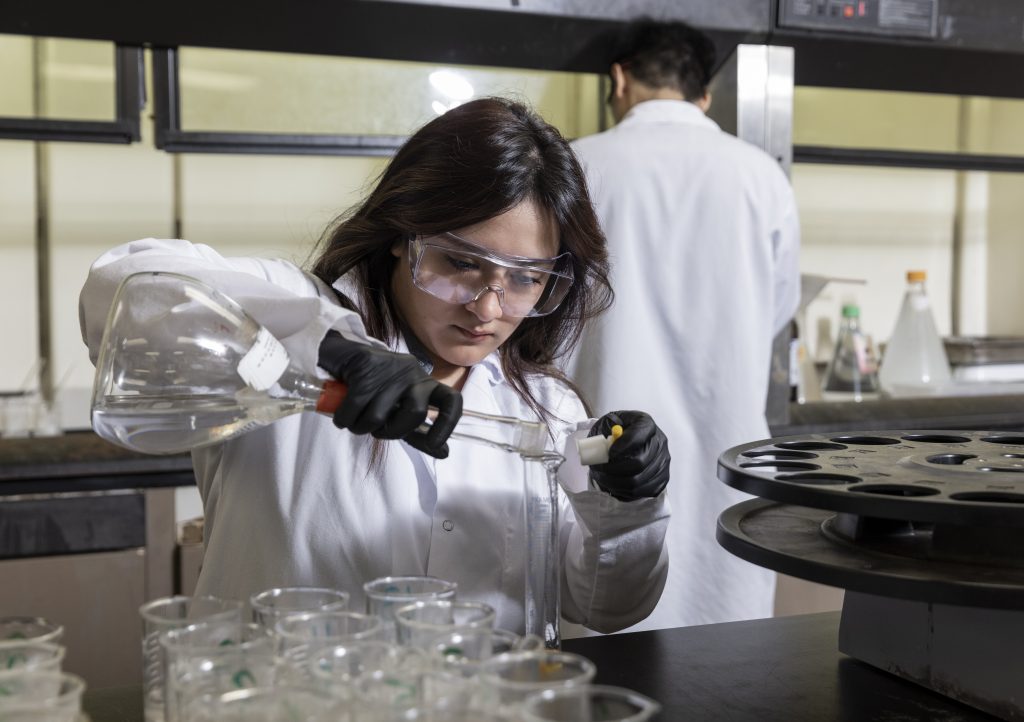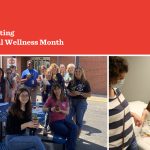World Food Safety Day
Tyson Foods is excited to join the global community in raising awareness about the importance of safe and nutritious food for World Food Safety Day on June 7, 2023. This observance draws attention to an issue that has a considerable impact on the overall health and welfare of the world.
“The Centers for Disease Control and Prevention estimates that each year 48 million people are impacted by foodborne illness in the United States alone. This is a significant drain on our society,” said Dr. Michael Rybolt, senior vice president of food safety and quality assurance (FSQA) at Tyson Foods. “Bringing awareness to World Food Safety Day serves a dual purpose. It not only reminds consumers of best practices but also acknowledges Tyson’s contribution to food safety through our dedicated workforce of 140,000 team members. We take pride in our responsibility to feed the world safely.”
The company’s food safety and quality assurance professional network comprises thousands of operations, engineering, supply chain and procurement team members who co-own food safety and quality. Each processing location employs experts in food safety and quality assurance.
Food Safety at Tyson Foods
Dr. Rybolt, the top FSQA executive at Tyson Foods, said the company embeds its commitment to deliver safe and wholesome products to customers and consumers in the product development process, from concept to commercialization. Team members engage the entire supply chain, from farmers, food scientists, inspectors, public health officials, researchers, educators, and others, working collectively to ensure the food we consume is free from contaminants at every stage of food production.
“Food safety is a team effort that requires collaboration, communication, and a shared dedication to excellence,” he said. “We walk through each step, from farm to fork, then discuss and identify potential food safety hazards that could be introduced.”
Through a robust food safety plan and the implementation of Hazard Analysis and Critical Control Points (HACCP), Tyson Foods team members diligently identify potential hazards at each step of the food production process. Team members make critical decisions, design safety programs, and establish control points to mitigate risks effectively.
“We have to deal with microbiological hazards like salmonella, listeria, E. coli, and campylobacter. We also have to deal with physical and chemical hazards such as plastics, metals, and sanitizers potentially getting into our products. We have robust food safety plans in place to address these hazards,” Dr. Rybolt explained. “We have systems in place to collect real-time data. This data helps us monitor food safety and quality programs, identify failures, and make decisions faster.”
Tyson Foods leverages innovative technologies like X-ray, hyper-spectral imaging and handheld devices to identify abnormalities in products, even at a microscopic level. Team members are involved in floor checks, conducting temperature checks, monitoring equipment, and ensuring adherence to proper protocols and personal protective equipment. The company is also evaluating the use of predictive analytics to proactively identify potential issues before they escalate into major problems.
“Innovation in food manufacturing is not just about creating new products, it’s about finding better ways to make them safer and more sustainable,” Rybolt said.
Additionally, in microbiological testing, Tyson Foods utilizes advanced techniques to detect the presence of specific organisms.
“In our extensive lab network, we perform advanced microbiological and chemical testing. For pathogens, we are primarily using molecular techniques to determine the presence of organisms. However, we can also conduct traditional microbiological analysis if necessary. We also have an extensive chemistry department to test a host of chemical compounds when necessary. Our robust food safety and quality control programs are tailored for the different products, and we can conduct nearly all testing in-house as directed by the programs,” he said. “Our microbiological and chemical testing processes leverage state-of-the-art methodologies to accurately identify and analyze any potential pathogens or contaminants. This rigorous approach allows us to maintain the highest standards of food safety and provide consumers with the utmost confidence in the products they choose,” added Dr. Rybolt.
Food Safety Education
Recognizing that everyone has a role in ensuring the safety of our food supply, Tyson Foods works to educate suppliers and customers on food safety best practices. Through its support of the Partnership for Food Education, Tyson Foods provides resources to consumers and team members, empowering everyone to follow food safety best practices at home. In plants, Tyson Foods provides food safety education and training to the team members so they can understand the “why” and “how” behind what they are doing to ensure safe products are being made.
“The four pillars of food safety are clean, separate, cook, and chill. It starts with cleanliness – clean hands, surfaces, and utensils are essential for safe food preparation. Next, it is important to separate raw and ready-to-eat products using separate cutting boards and utensils. When cooking, use clean plates to prevent cross-contamination,” he said. “Use a food thermometer when cooking. It is the only way to know that your product is truly safe. The final step is vital. Refrigerate or freeze leftovers within two hours. This prevents the growth of harmful bacteria and helps maintain freshness and quality.”
With a focus on quality, innovation, and collaboration across the food supply chain, Tyson Foods continues to be a leader in upholding the highest standards in food safety.
To learn more about Tyson Foods’ commitment to food safety, click here.






